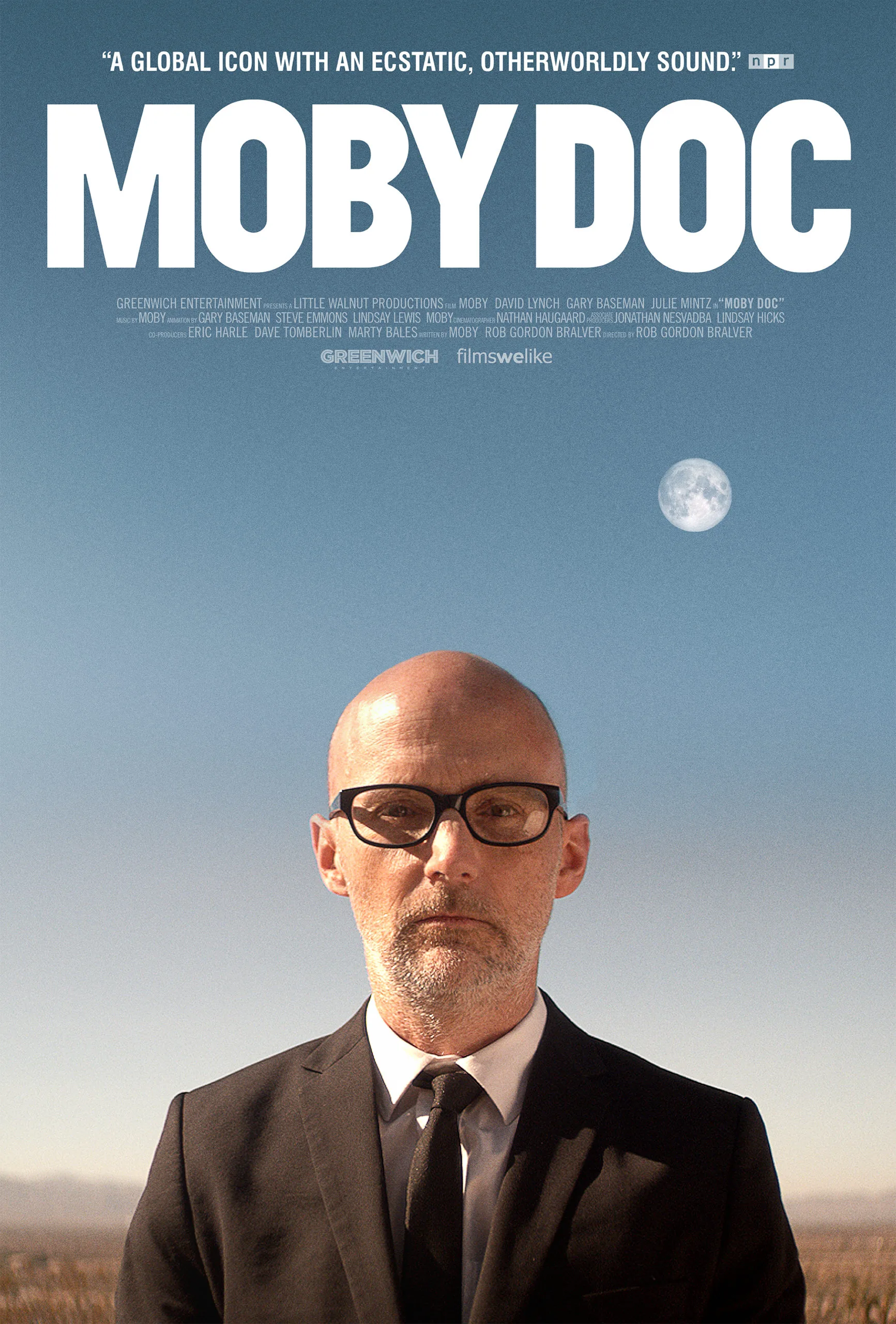Moby Doc

The life and career of the electronic music pioneer are told in surrealist fashion in Moby Doc. Richard Melville Hall, better known by his stage name of Moby, was in 1965 in Harlem, New York. Suffering from an unhappy childhood and taking solace in the family pets, Moby learned from an early age that while “animals are nice, humans are terrifying.” Growing up poor in a wealthy Connecticut neighbourhood, Moby quickly developed a fondness for punk rock and later the burgeoning electronic music scene. Recording his early records in the 1980s, while squatting in an abandoned factory, Moby had his first taste of success with his 1990 single “Go,” particularly a remix of the song that sampled one of the themes from Twin Peaks. After falling prey to the sex, drugs, and rock and roll lifestyle and his failed 1996 punk album “Animal Rights,” Moby rose to unexpected superstardom with his next album “Play,” an album recorded in his bedroom. However, Moby’s failure to capitalize on the album’s success leads him to finally confront his demons.
Moby Doc is a film credited to Rob Gordon Bralver, director of many Moby music videos and the 2011 documentary Cure for Pain: The Mark Sandman Story, however, it’s probably safe to say that Moby Doc is an outlet for Moby to tell his story in his unique way. Utilizing archival footage, along with wooden puppets and “the childhood trauma reenactment players,” Moby Doc covers the musician’s rise and fall, followed by a bigger rise and a steeper fall, all while struggling with substance abuse issues, anxiety, and depression. Eventually, Moby would refocus his career away from success in the music industry and more towards his lifelong fight towards animal rights.
As admitted a few times within the film itself, Moby Doc is a very weird and surreal biography about someone who can be considered one of the main pioneers of electronic dance music, yet success was never anything that Moby tried to achieve and in some ways, fame only resulted in worsening Moby’s substance abuse and depression, to the point where he contemplated suicide while in a Barcelona hotel suite. In some ways, Moby Doc is more a film about how Moby looks back on his life than his music career itself, though his songs are present throughout as the documentary’s score. In addition to a few of Moby’s actor friends, who appears in re-enactments, staged psychiatry sessions, and a conversation with Death, the film also fittingly featuring many appearances by David Lynch and a brief discussion about Moby’s friendship with David Bowie, which developed after they became neighbours in the early 2000s.
Like many people, I first became acquainted with Moby through his 1999 album “Play,” which resulted in him having a brief taste of superstardom. While I personally remained a fan of his music in the two decades since, I admit that he is a somewhat polarizing figure, especially when it comes to his extreme veganism and fight for animal rights, which has somewhat eclipsed his musical career in recent years. Some of these political beliefs leak into Moby Doc, particularly at one point when Moby narrates how he believes “one of the reasons people treat animals so badly is because of loneliness.” In fact, the film heavily suggests that Moby’s vegan lifestyle came about by the fact that he had a deeper connection with animals than people growing up.
Ultimately, Moby Doc is more about the man than the music and the surreal presentation, which actually isn’t too unlike the films of David Lynch, probably isn’t for everyone.
Moby Doc is available on Thursday, May 27, 2021, on Hot Docs @ Home and on Friday, May 28, 2021, on other VOD platforms.
Related Links
- The Five Rules of Success – Fantasia 2020
- Charles Bradley: Soul of America
- Hot Docs 2019: Gordon Lightfoot: If You Could Read My Mind


 Get ready for a vibrant and fun-filled painting experience with Splatter Painting in Toronto!
Get ready for a vibrant and fun-filled painting experience with Splatter Painting in Toronto!  Unleash your creativity with an energetic splatter painting session
Unleash your creativity with an energetic splatter painting session 